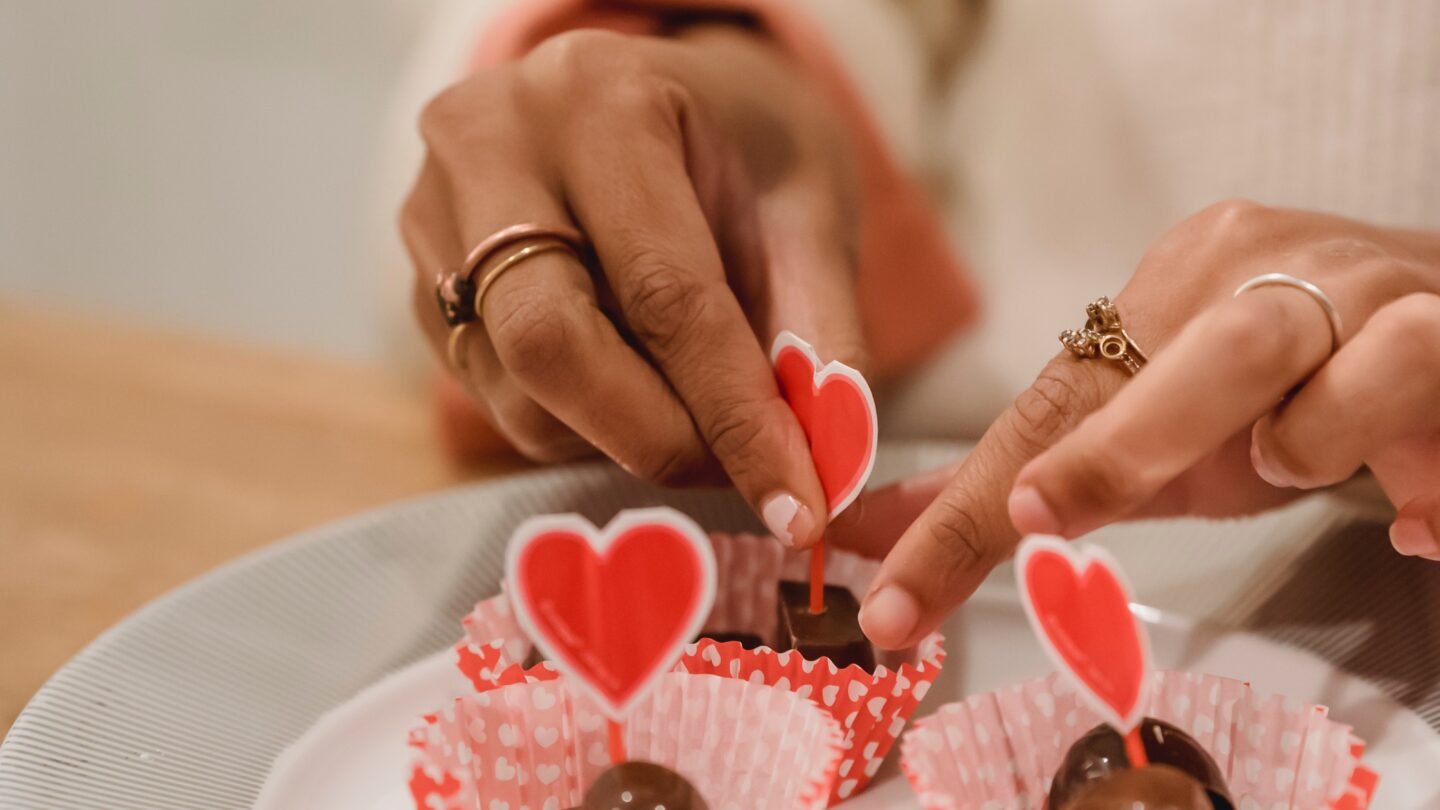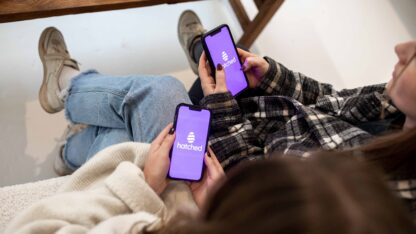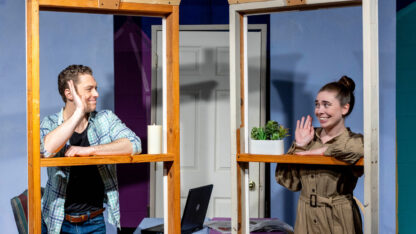The delivery of flowers and the marathon advertisements for jewelry commercials are a signal that Valentine’s Day is here. For some, the holiday equals a festive celebration of gifts, meals or expensive presents.
On the day of Cupid’s arrow drops, Atlanta couples therapists Chantel Cohen of CWC Coaching and Therapy and Liz Fava of Fava Counseling offered their innovative and enlightening perspectives on how couples can create an unconventional Valentine’s Day to remember.
“The Language of Love”
When it comes to understanding what would make a successful day with your partner, the first step comes in determining what best fits their “love language.”
Explored by author Gary Chapman in the 1992 book, “The Five Love Languages: How to Express Heartfelt Commitment to Your Mate,” the ‘languages’ — words of affirmation, acts of service, gifts, quality time, physical touch — can help best determine what type of expressions of intimacy that your partner will appreciate the most.
“Gifts is one of them, but what about the four others?” Fava said. “Couples can take an online quiz to find their ‘language’ … and [ask], ‘Can we share our words of affirmation?’, whether it be letting your partner know how much you appreciate them and how great you think they are … ‘Can we engage in physical touch, whether it be snuggling, or cuddling or sexual intimacy?'”
“Can We Talk?”
When creating a conversation on improving your Valentine’s Day, a primary factor that cannot be ignored is the importance of conversation.
While looking at the Gottman Method, research conducted over 40 years by Drs. John and Julie Gottman on the construction and growth of healthy marriages, Fava notes the component of friendship and active communication is one of the top factors in keeping a successful partnership. And not all communication has to come in the form of spoken words.
To stay connected to each other’s inner growth, Fava encourages couples to ask deeper questions about their partner’s life, beyond just “How was your day?”
“Set the stage for the moment … light candles, maybe even have a glass of wine, and take time out to sit down and define what your relationship means,” Cohen said. “You can use the night to talk about your goals for the relationships. It can be, ‘These are the things we’ve accomplished together,’ ‘This is how great our communication has gotten.’ You can even combine spiritual goals you have and religious goals that you have … and start building what the next year is going to look like for your relationship.”
“Justify My Love”
According to Lava and Cohen, tokens of gratitude and appreciation do not always have to come in the form of chocolate boxes or diamond necklaces. Gifts created directly to highlight specific qualities appreciated within your romantic partner will assure them of your feelings towards them and your future hopes for the relationship.
“I believe one of the most powerful things one can do on Valentine’s Day is to write a love letter,” Cohen said. “You want to be vulnerable and tell a story … let them know how much they mean to you. People do not get those type of letters anymore, they are of a bygone era, and why it’s so special is because people often don’t always express something in writing, and it kind of just goes away. Flowers die, chocolates get eaten, but this is something that is a legacy. Performing a song is also a huge thing, and sending that to your partner right before they wake up, performing it live for them,” she said. “My favorite song choice is ‘All of Me’ by John Legend. Having that sent to you as soon as you wake up … it’s beautiful.”
In addition to creative performance, Fava suggests that assisting your companion with daily chores or activities can also be an effective and affectionate way of showing appreciation, be it providing a breakfast in bed or making sure all dishes are washed by the time they arrive home from work.
“This Magic Moment”
Fava said that activities in which couples can interact side by side have shown to be effective in creating active conversations and moments in which couples can stay actively engaged to one another. She suggests going on a hike or trying a new class to create a sense of closeness.
“What we know as mental health therapists is that if we want to create change, the more senses that we can involve … the greater chances that we are creating memorable experiences,” Fava said.
If there is still a desire for a “date night” setting, Cohen suggests creating an evening that stands out from previous outings, whether it be a night at the drive-in theatre or a picnic and walk throughout a secluded nature trail.
“For the low-key couple, I love the Starlight Drive-In,” she said. “In my mind, if your favorite meal is Popeye’s Chicken, if you’re always being healthy, go to pick up some Popeye’s Chicken, or if you’re a little fancier, go to Whole Foods and pick up a meal and enjoy that at the drive-in. It’s a very romantic evening. If the person is really a quality time person, I recommend the Lullwater Preserve; make some sandwiches or pasta salad at enjoy and Uber there to enjoy.”
“I Don’t Want to Miss A Thing”
In a time where modern technology has taken the frontline in sharing and showcasing personal moments, it can be easy for couples to stray away from enjoying moments with their partner in order to immerse themselves in the perfect photo op or social media post. And Fava and Cohen say some couples begin to become dissatisfied with their own relationships and lives by comparing themselves to other relationships on social media.
“I think people expect to be wowed and it has to be grand, and they have to have an audience, and a relationship is private and deeply personal,” Cohen said. “It is literately the most intimate relationship that you are ever going to have, and when you are looking for social proof from other people, you’re missing the moment completely. They are getting their gratification not from what their partner did, but from people telling them that it’s great.”
“I think people don’t appreciate small things or romantic gestures from their partners, but that’s how relationships are built,” Cohen said. “You have to be able to solve problems, dream together, be able to draw a future, know that you have to count on each other no matter what … you can’t build that focusing on social media or social proof. It’s the opposite of what intimacy is.”









